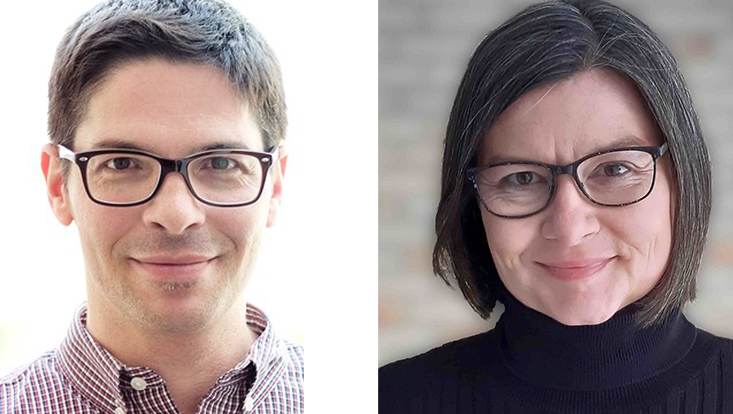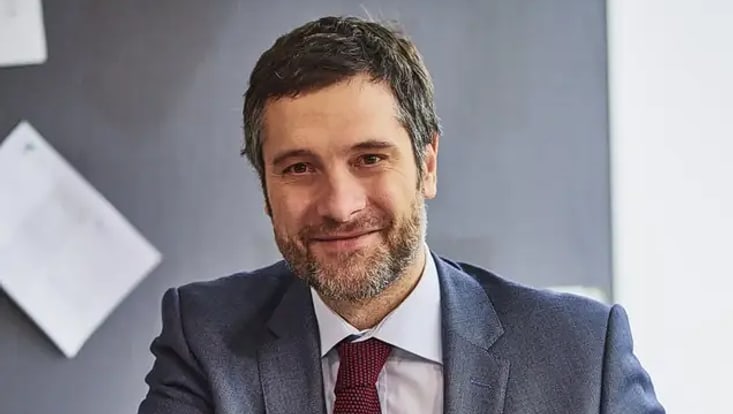„Tchuligom“, „büdde“, and „!!1elf“How Digitalization Changes Written Language
15 March 2021, by Christina Krätzig

Photo: private collection/UHH
Effective immediately, Universität Hamburg is funding 5 research projects as part of the Next Generation Partnerships—Thematic Networks program. The funding is earmarked for the preparation of long-term external funding projects. One of the projects focuses on changes in written language as a result of digitalization.
In our globalized and digitalized world, the written word serves purposes different from those of a generation ago. “When people write to each other using smartphones and laptops, it’s more about interaction and exchange than about imparting information,” explains Jannis Androutsopoulos, linguist at Universität Hamburg. “In these cases, typed characters have to take on the functions usually transfered by voice, gesture, and facial expression in direct communication. This is why people often change digital writing. They are adapting it to their communication needs.”
According to Androutsopoulos, the German “Tchuligom” for Entschuldigung, “büdde” for bitte, and “!!1elf” (“elf” means eleven in German, with the whole combination being a parody of unsuccessful attempts to type multiple exclamation points) are typical for written words intended to transport emotional or social meaning in digital communication: ineptitude, emphasis, or dialectic nuances through which the writer reveals something about his or her personal background when typing the message.
Jannis Androutsopoulos and Heike Zinsmeister from the Institute for German Language and Literature would like to spend the next 3 years studying the ways that digital writing changes writing systems in different languages. The Hamburg researchers will cooperate with scientists and scholars from Indiana University, University of Luxembourg, Utrecht University, and King’s College London to analyze, in addition to German language data, English, Dutch, Luxembourgian, Greek, and Chinese language data.
“The last two languages are especially exciting because they have different writing systems,” says Androutsopoulos. For example, in Chinese, doubling letters or writing in capitals is not possible. “We are eager to see whether in this language writers have similar impulses to make linguistic changes similar to those in German or English.”
Methodologically, the linguists want to sound out the synergies of qualitative and quantitative procedures. They are relying on computer linguistic evaluation procedures in order to assess large quantities of data and on ethnographic methods to interpret writing variations in context. They will take the data from social media as well as from private chats. The researchers will concentrate especially on emotional issues. “You can observe the communicative rituals for celebrating and mourning in which users sound out the expressive possibilities of written language especially well in social media,” says Androutsopoulos.
Next Generation Partnerships—Thematic Networks
One funding requirement in the Next Generation Partnerships—Thematic Networks program is the participation of a least 2 further international universities, whereby at one must be a strategic partner of Universität Hamburg. Every project is funded with up to €60,000 per annum for a total of 3 years. The funds come from the Excellence Strategy of the Federal and State Governments.
In addition to the project mentioned above, the following projects will also receive funding starting in 2021:
- Prof. Dr. Dr. h.c mult. Ingrid Gogolin and Prof. Dr. Sílvia Melo-Pfeifer (Education): Social Participation Across Generations in Linguistically Diverse Societies—Risks and Chances in Times of Crises
- Prof. Dr. Kai Jensen and Prof. Dr. Christian Beer with Prof. Dr. Inga Hense, Prof. Dr. Ina Meier, Jun.-Prof. Dr. Philipp Porada, and Jun.-Prof. Dr. Elisa Schaum (Mathematics, Informatics and Natural Sciences): Partnership for Research on BIota-Climate-Feedbacks (PERICLES)
- Prof. Dr. Thomas Marlovits (Medicine): Tuberculosis: Discovering Novel Molecular Targets for the Prevention of Tubercle Infection
- Dr. Thore Posske (Mathematics, Informatics and Natural Sciences) Next Generation Network on Topological Spin and Superconducting Physics


